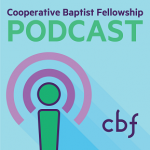By Terrell Carter

There is a burning question that is regularly being asked in the United States. It comes in various forms, but it ultimately seeks to know, “In any given situation, who is right and who is wrong, and which side of the argument are you standing on?”
In I Corinthians 8:1-13, Paul is faced with a situation that could have turned into an exercise in finger pointing. He had been asked to mediate between two groups of people who were on the opposite sides of an argument. How Paul handled the disagreement is an example for us to consider as we regularly navigate the intricacies of human relationships.
The problem that Paul was asked to moderate is foreign to the 21st Century. The question he was presented with was, “Is it okay for Christians to eat meat that was previously sacrificed to idols?” When was the last time you were asked to navigate such a thorny subject? Most of our decisions related to meat are whether we want to have chicken, beef or pork for dinner.
Paul, the quintessential theologian and philosopher, is very secure in his salvation and understands that there is no god outside of the God of his ancestors. The false gods that meat had been sacrificed to really did not even exist, and they had no power or influence over Christ-followers.
So, the answer to the question was “Yes, a believer could, with a clear conscious, eat meat that had been sacrificed to false idols.” There were other spiritually mature believers in the congregation who agreed with Paul. So, problem solved, right?
The surface question may have been answered, but there was something below the surface that still needed to be dealt with. I think that below the surface concern was, “Was the conversation just about who was right or wrong, or was it really about how to navigate relationships?”
This was relevant to Paul because there were other believers in the congregation that did not agree with him. Some of the dissenters were new followers of Christ who did not have the same level of maturity as Paul or those who agreed with Paul. Paul determined that his right intellectual position was not more important than the spiritual health of those who disagreed with him. He concluded that he would rather become a vegetarian than eat meat and cause spiritual confusion within the congregation.
Like Paul, we sometime face the same challenge. Do we do what we know is right or do we instead act in ways that protect the larger body of Christ? The big question is not who is right or wrong, but how is the larger body affected by the answer we give to questions that we deal with at any given time?
I think that is the principle idea that most of us miss out on, even in the church. We think about ourselves first and the body second. We think about our desires, our affiliations, our hopes and dreams and forget that we are not an island unto ourselves.
My grandmother, a real-world theologian in her own right, would say it this way, “It ain’t about you.” Life does not revolve around you, or me. It does not begin or end with what we want or what we alone think is best. Life within a group of Christ-followers revolves around what Christ says is best for the overall body. And the foundation of Christ’s teachings and actions was love. Love, not just for the people who agree with us, but even for those with whom we do not agree.
Sometimes spiritual maturity looks like taking the time to think about others before you think about yourself. It can look like taking the time to consider how those who are not as spiritually mature as you are may be affected by a decision you make. It may sometimes require us to act in ways that benefit the greater good of the community before we act in ways that benefit us. This is the example that we have received from Jesus the Christ.
Terrell Carter, D.Min., is assistant professor and director of contextualized learning at Central Seminary in Shawnee, Kan., and pastor of Webster Groves Baptist Church in Webster Groves, Mo.
Note: The views expressed here in columns and commentaries are solely those of the authors.
Interested in writing for CBF at Patheos? Submit your column idea to CBF Communications Director Aaron Weaver at [email protected].










